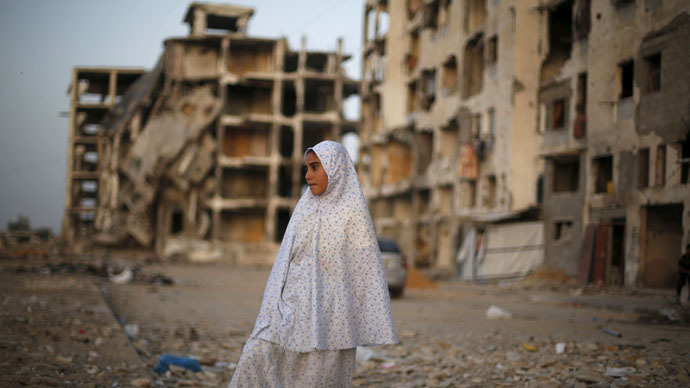‘Israel-Palestine peace would lead to major economic development within whole Arab world’

The economics of the Israeli-Palestinian conflict is important, but there are other factors that have a far greater impact on the prospect of peace, or the lack of it, Alon Ben-Meir, professor of international relations at NYU, told RT.
The RAND Corporation global policy think-tank has calculated how much Israel and Palestine would gain if they ended their conflict and what's to lose if they don't. An escalation would cost Israel $250 billion over a decade. Moreover, per capita gross domestic product would fall by 10 percent by 2024.
READ MORE: Peace between Israel, Palestine could bring $173bn in economic benefits – study
RT:Do you think the politicians are aware of this data?
Alon Ben-Meir: I don’t think this data is common knowledge among many politicians or those involved in the Israeli-Palestinian conflict per se. Many of them know that there will be economic implications should there be peace or the lack of a peace, but the data in and of itself, I am not aware of it as much.
You cannot really judge or measure the Israeli-Palestinian conflict based on economic data. Economic data has some effect but primarily the cause behind the conflict is territorial, theocratic, ideological as well as religious. So the economy does have an impact, but the other three elements have a far greater impact on the prospect of peace or the lack of.
Journalist and former Israeli diplomat Gideon Levy on the RAND survey about the costs of the Israeli-Palestinian conflict: “I don’t think that even if [politicians] would be aware of this data they will consider it seriously because it’s not only about rational behavior. There are many other factors which are much stronger than the rationality and logic unfortunately.”
RT:Why is the war still ongoing then?
ABM: There is no current war between the two sides. But for some reason Israelis believe that the status quo is to their advantage. I personally disagree very much with that because the longer the occupation persists the worse it will get for Israel. I think the Israelis should sooner or later come to this conclusion and look for a solution to bring an end to the occupation. That is going to result in major economic development, not just within Palestine which is important, but actually the rest of the Arab world. That’s where the Israeli economy can expand to a great extent, because remember currently Palestine, the West Bank and Gaza buy 80-90 percent of their products from Israel anyway. So the increase in Israeli export and trade would have to come when Israel deals and trades with the rest of the Arab world, and only after there is a Palestinian-Israeli peace then the Arab states will open their markets for Israeli goods and services.

RT:Who benefits from the war?
ABM: It’s beneficial if the peace agreement actually meets their terms and so far I don’t think any peace agreement will meet the Israeli terms. They don’t want for example Jerusalem to be the capital of two states. They are not willing to relinquish many of the settlements in the West Bank. So from their perspective - and I think it’s erroneous and absolutely wrong - the longer this status quo is sustained it might be better for them, but I certainly do not agree with that prognosis.
Journalist and former Israeli diplomat Gideon Levy comments on why the Israeli-Palestinian conflict goes on and who might benefit from it: “This is no rational explanation for killing other people, for fighting on nothing, for spending so much money on nothing instead of living better. Sure, there are always side benefits: arms industries always benefit, generals, politicians, but it’s a very short term benefit. By and large – everyone is losing… So many politicians lost their careers because of the war.”
RT:What impact will the peace scenario have on the arms industry?
ABM: Much of the Israeli exports of arms are certainly going to many East and West European countries and Asian countries as well. Whether under the conditions of peace the Arab states will buy arms from Israel, it’s entirely possible. Israel is one of the most advanced nations in terms of its military technology. So its military technology is desired and it’s sought after by many countries, including Western European countries and some of them even go to the US. So that is one advantage that Israel has, and will continue to have that advantage for some time to come.
MORE:
The statements, views and opinions expressed in this column are solely those of the author and do not necessarily represent those of RT.
The statements, views and opinions expressed in this column are solely those of the author and do not necessarily represent those of RT.












